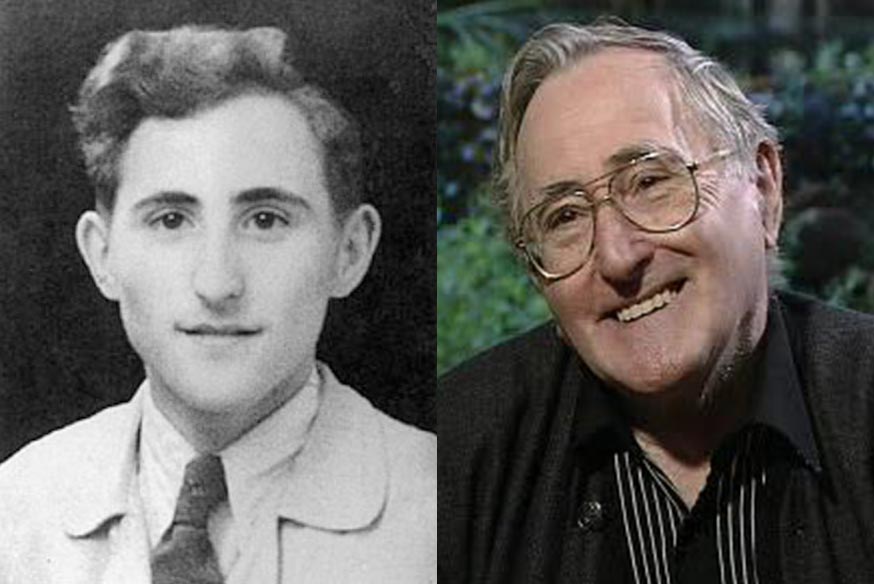Some very sad news in two deaths that you probably don’t know about. The first was Alan Saunders, host of ABC (that’s Australian Broadcasting Corporation for all you foreigners!) radio’s Philosopher’s Zone show and podcast. He died 2 weeks ago of a sudden bout of pneumonia but I only found out recently because this week’s podcast was a tribute to his life. Born in London, Saunders got a BA and a BSc followed by a PhD in Philosophy of Science. Alan worked on ABC Radio since 1987 and was regularly published in many mainstream publications. However, it was with his podcast that he laid claim to being (IMO) one of Australia’s premier public intellectuals.
Each week Alan would interview someone new about a different philosophical topic. He was a true polymath, being well-versed in pretty much every aspect of philosophy, as well as the relevant parts of history, science and culture. Despite this, his podcasts were not heavy — in fact he was remarkably down-to-earth, even blokey. His interviews sounded more like relaxed chats over a cup of tea and this was one of the ways he genuinely made philosophy accessible to the general public. He often drew examples from everyday life and as the last episode of the podcast (a tribute to him) reminded me, he often did episodes on pop culture that he liked, for instance the philosophy of Hitchcock or the philosophy of Buffy the Vampire Slayer (his favourite show).

My terrible out of focus photo of Saunders at the retrial
I’ve only seen him once in real life and that was at the 2009 retrial of Galileo. As I said at the time, Saunders played a magnificent Clavius. Clavius was one of the most respected contemporaries of Galileo in Aristotelian and Ptolemaic cosmology. Clavius did NOT buy Galileo’s theories for a minute, for reasons that were actually pretty good at the time but sound silly today thanks to us seeing the world very differently. Who better to play a role that needs this level of nuance than Saunders? He stayed in character (in terms of argument and presentation) much better than anyone else. Unfortunately I think this was missed by the audience because, like I said, Clavius’s arguments really do seem silly from a modern perspective.
 The second death was Gad Beck, the last gay Jewish holocaust survivor. I’ve never heard of Beck at all until his death. Gad’s partner Manfred Lewin was arrested and Gad managed to secure him a release. Lewin declined saying his family needed him. Beck joined an underground resistance movement, helping with the logistics of ferrying Jews to Switzerland. However, Lewin died before the liberation. Beck went to Palestine in 1947 and moved back to Berlin in 1979.
The second death was Gad Beck, the last gay Jewish holocaust survivor. I’ve never heard of Beck at all until his death. Gad’s partner Manfred Lewin was arrested and Gad managed to secure him a release. Lewin declined saying his family needed him. Beck joined an underground resistance movement, helping with the logistics of ferrying Jews to Switzerland. However, Lewin died before the liberation. Beck went to Palestine in 1947 and moved back to Berlin in 1979.
I found myself very affected by both deaths, and I think one explains the other. With Beck, even though I did not know him at all, he represented some kind of earthly link to the terrors and tribulations of history, as well as all the perseverence and triumphs of his life. With Beck, yet another drawer in the collective heritage that belongs to all of humanity has closed forever. Now, literally nobody knows what it was like to be Jewish and gay in the horrors of the Nazi regime. No gay Jewish survivor will ever get to smile at any further milestones in gay rights. And so forth. But of course, another drawer has closed with the death of Alan Saunders. And from what little I knew of his work and his personality, this was also a particularly rich drawer that contributed to our collective heritage.
I used to be a little more judgemental of people who became upset at the deaths of someone they’ve never met. It’s true that often this happens in the context of celebrities, where it’s not the same kind of thing. There, there’s the added element of mass mourning (since those people are orders of magnitude more well known than Alan Saunders or Gad Beck), which often becomes puerile. Still, I understand it a little better. And I think it would be very dickish to think that you needed to have known someone to feel sorrow over their loss.
Is there any person who you didn’t know too much about whose death affected you similarly?
The extreme case of this is my grandmother who pretty much weeps whenever she reads about the death of anyone who she knew from her life in the Soviet Union. Any kind of singer or actor or writer or scientist who had been known to her from say the 60s or 70s is enough. It’s more understandable now — the loss is not in the personal connection. She had spent the vast majority of her life in a completely different universe to the one she lives in now (suburban Sydney in the 10s). That whole world is pretty much gone. So few threads remain that whenever a single one is snuffed out, the loss of that whole world is felt again. The drawer is closed.
Vale Alan, vale Gad.





0 Comments